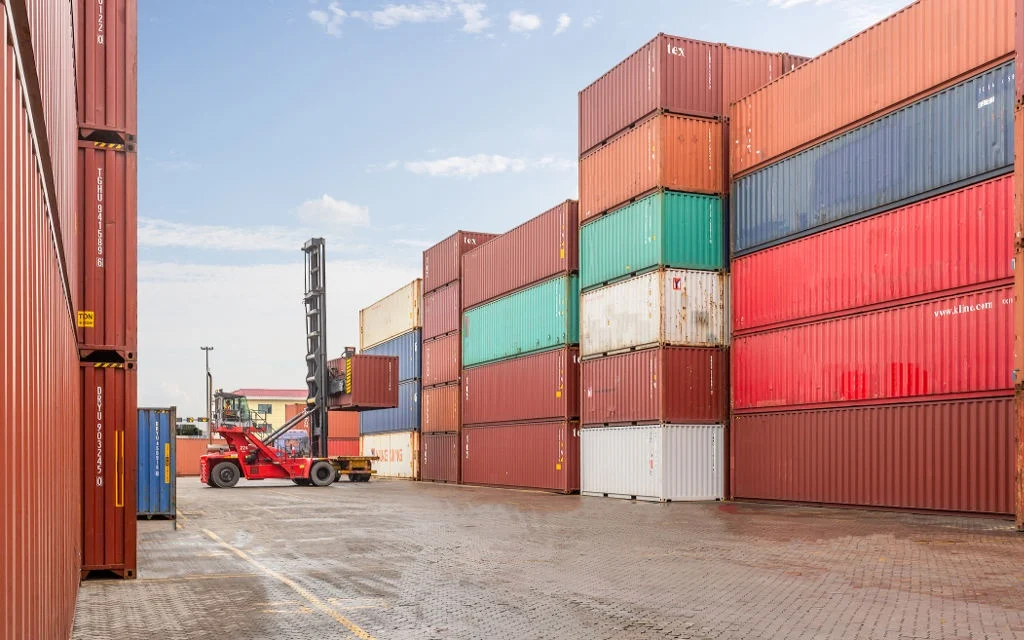Africa's free-trade remains muted but likes of Sim Tshabalala is aiming to move the needle

In Ghana, only two companies have done trade deals under the African Continental Free Trade Area (AfCFTA) agreement, according to the Ghana Investment Promotion Centre. But here in South Africa, no one had a single deal to brag about at the webinar hosted by the Gauteng Growth and Development Agency on Friday.
Five months after the AfCFTA came into effect, opening up a free trade area that connects 55 countries and 1.2 billion people on paper, trading tariff-free with other countries in the continent remains a dream for many businesses as leaders are still ironing out more details. Only 38 countries have ratified the agreement so far.
So, free trade is a reality that's so close yet so far, which has made those who were sceptical about it want to say: "I told you so."
But at least more information is coming forward now. The AfCFTA Secretariat's secretary-general, Wamkele Mene, told those attending the webinar on Friday that challenges with getting the wheels turning were always going to be there.
The AfCFTA coincided with the rise of nationalism globally. Africa was already battling with xenophobia and people on the ground felt displaced in their own countries. Attacks spilled over to businesses such as Shoprite and MTN, forcing some companies to reconsider their stay in some markets.
There are also fears from smaller nations who don't have the competitive advantages that markets like South Africa and Morocco have. They are afraid how opening themselves up to free trade without crossing every T and dotting every I could kill their infant and vulnerable industries, said Mene.
"I expect that we will have challenges, but we must confront those challenges," he said.
Mene said the European Union also grappled with challenges of cumbersome customs procedures [and] differentials in macro-economic developments. But Africa has to tackle them at its own pace.
"The European Union, 72 years down the line, is still grappling with some of the challenges of market integration. But I think we can see from its experience that, actually, the benefits have far outweighed what critics, 70 years ago, presented as challenges," he said.
The ultimate prize if the continent gets this right makes it look like it's something to fight hard for. Mene said projections indicate that Africa's combined GDP would come close to US$8 trillion by 2035. Currently, the continent's GDP is estimated to be more than US$ 3.4 trillion.
The World Bank also said last year that the AfCFTA can lift 100 million Africans out of extreme poverty by 2035 if the continent gets this right and could help narrow the gender pay gap.
A lot of work is going on in the background
The AfCFTA Secretariat realises that, as encouraging these projects are, it must start moving the needle. And a lot of work has to be done to get the private sector fully on board.
One of the projects that are already under way to make sure that small and medium businesses also feel that the free trade area is accessible to them is the construction of a digital trade platform and policies that will govern it.
"If you are in west Africa, through these digital platforms that we will introduce, you will now be able to connect with a small [or] medium enterprise or a market in East Africa or southern Africa," said Mene.
The Secretariat has also accepted an offer from Standard Bank CEO, Sim Tshabalala who wants to help develop a trade finance policy for businesses that want to trade under the AfCFTA.
Mene said the free trade area is not meant to just benefit big corporations and those businesses that were already involved in imports and exports. The Secretariat wants to see more women, youth and first tie cross-border traders take advantage of it.
"Mr Sim Tshabalala and I are working together to develop a trade finance facility that will support these small and medium enterprises to be able to leverage new markets in Africa that this agreement will open," said Mene.
Other challenge that the Secretariat is trying to solve is the issue of currency convertibility in Africa. Currently, if a South African business wants to trade with someone in Ghana, it must convert the Rand to the US dollar and vice versa.
The Secretariat is working with African Export-Import Bank to develop a pan-African payments and settlement platform which would work with all the 42 currencies in the continent. The platform is already under pilot in six countries and the AfCFTA Secretariat hopes to roll it out to the rest of countries that have ratified the agreement by the end of 2021.
It is also trying to digitise customs functions so that it can fast-track things like processing certificate of origin within hours instead of the manual process that takes 14 days.

